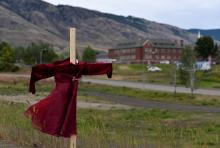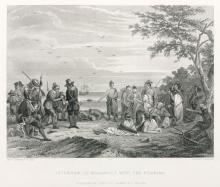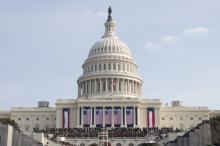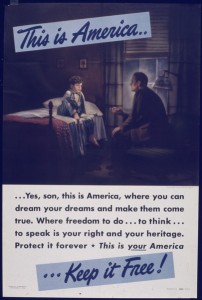native peoples

Indigenous leaders and school survivors on Sunday dismissed Pope Francis' expressions of pain at the discovery of 215 children's remains at a former Catholic residential school in Canada, saying the church needed to do much more.
In his weekly blessing in St. Peter's Square on Sunday, Francis said he was pained by the news about the former school for indigenous students and called for respect for the rights and cultures of native peoples. But he stopped short of the direct apology some Canadians had demanded.
Reconciliation is never easy, which is why it doesn't happen very often. Reconciliation is not something that can be checked off of a list. It is not a single event encapsulated in a moment of time. Reconciliation begins with a conversation and ends with a relationship restored.
It was the morning of Dec. 19, and I was standing in front of the U.S. Capitol building in Washington D.C. I had reserved that space months in advance so I could host a public reading of H.R. 3326, the 2010 Department of Defense Appropriations Act. I did this because page 45 of this 67-page document contained an "apology to native peoples of the United States." In three years this apology had not been announced, publicized, or read by either the White House or the 111th Congress.

"The antidote to feel-good history is not feel-bad history but honest and inclusive history." – James Loewen, Lies My Teacher Told Me, 92.
It’s becoming increasingly difficult for Americans to celebrate Thanksgiving. This Thanksgiving, as we take turns around the dinner table sharing why we are thankful, a sense of awkwardness settles in. The awkwardness is not only due to the “forced family fun” of having to quickly think of something profound to be thankful for. (Oh, the pressure!) The growing awkwardness surrounding Thanksgiving stems from the fact that we know that at the table with us are the shadows of victims waiting to be heard.
Humans have an unfortunate characteristic – we don’t want to hear the voice of our victims. We don’t want to see the pain we’ve caused, so we silence the voice of our victims. The anthropologist Rene Girard calls this silencing myth. Myth comes from the Greek worth mythos. The root word, my, means “to close” or “to keep secret.” The American ritual of Thanksgiving has been based on a myth that closes the mouths of Native Americans and keeps their suffering a secret.

If I had to translate her words into Navajo, I would say “ádin.” Ádin means nothing, none, zero.
I couldn't believe my ears. I was visiting Iowa in the first week of January during an election year. Presidential candidates were crisscrossing the state — kissing babies, shaking hands, and pleading for the vote of everyone they met. Campaign events were taking place in high school gymnasiums, community centers, and local businesses throughout the state. Many of the people I met had personal stories of meeting one of the candidates, shaking their hands, and talking about their issues. There are 99 counties in the state of Iowa, and a few of the candidates were taking the time to stop and hold campaign events in each and every one of them. But there I was, just a day before the caucuses, standing in the community center and tribal offices of the Meskwaki Settlement near Tama, Iowa, with the tribe’s executive director telling me that not a single presidential candidate had held a campaign event in their community.
I shouldn't have been surprised. After all I live on the Navajo Reservation. Our reserve is nearly 26,000 square miles with about 300,000 enrolled tribal members, and I cannot recall in my lifetime a presidential candidate visiting our reservation and campaigning directly to our people.
Nearly 50 million Americans are currently living below the poverty line (that is $22,000 for a household of four) and half of them are working full time jobs.
In our current economic system, the "happiness" of the super-elite is secured while the lives, liberty, and access to basic needs of the rest suffer. This isn't the American Dream and it isn't God's dream either.
